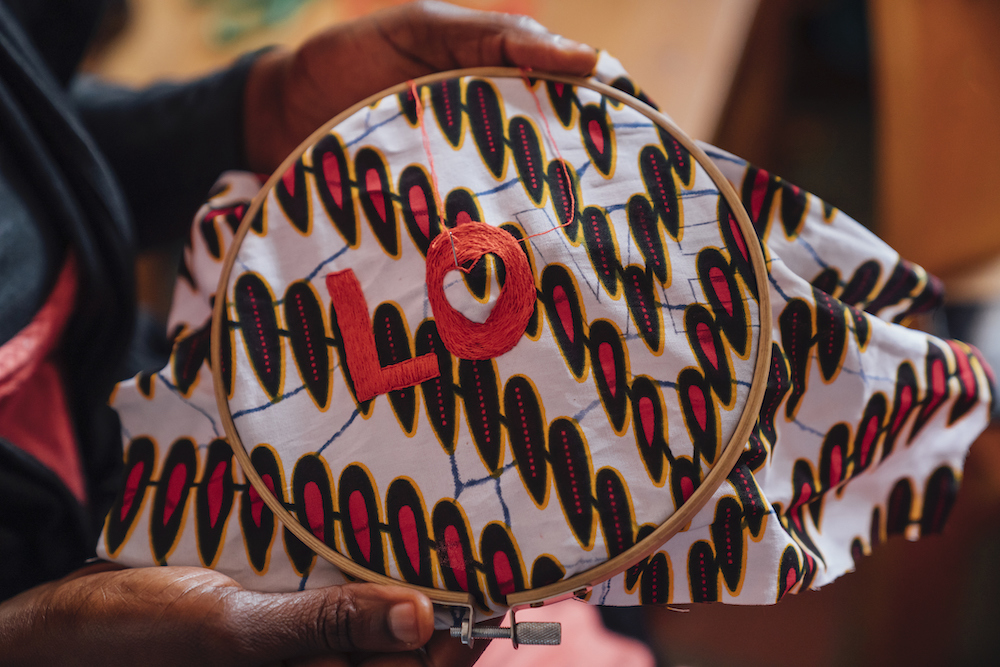- Mastercard Foundation is aiding the medical effort against COVID-19 in Africa and elsewhere, while supporting entrepreneurs that have been hammered by the lockdowns during the pandemic.
- The foundation, started in 2006 with a gift of shares from MasterCard Inc. shareholders, aims to inject up to $1 billion into Africa’s agriculture sector.
- Africa is home to about half of the world’s unused arable land and the sector has the potential to employ a large segment of the continent’s workforce.
Mastercard Foundation is taking on the twin challenges of helping the medical effort against COVID-19 in Africa and elsewhere, while also supporting small businesses that have been hurt by the lockdowns.
In partnership with Africa CDC, one of the continent’s main medical coordinating bodies, Mastercard Foundation aims to support the procurement of one million COVID-19 tests and the recruitment and training of 80 epidemiologists and 10,000 community health workers to assist with containing the outbreak.
The foundation, created with a donation of stock from MasterCard Inc. shareholders at the time of the credit card company’s 2006 initial public offering, is committed to supporting entrepreneurs whose businesses are expected to employ the bulk of Africa’s young and growing workforce, says Peter Materu, the chief program officer for Mastercard Foundation.
“We are also working more directly to safeguard [micro, small and medium-sized companies], which are the predominant driver of job creation on the continent, ” said Materu in an email interview with Karma.
The foundation is working in multiple countries such as Ghana, where it has partnered with the National Board for Small Scale Industries, a non-profit organization under the auspices of the Ministry of Trade, Industry and Presidential Special Initiatives. The NBSSI is injecting small businesses with much-needed capital to enable the companies to weather the economic fallout from the outbreak.
In Ethiopia, Mastercard Foundation says it’s working with small and medium-sized businesses who are retooling their manufacturing operations to produce personal protective equipment for use during the pandemic.
Overall, the foundation has set an ambitious goal to enable 30 million young Africans to secure employment by the end of this decade.
“It is not the kind of thing that can be achieved unilaterally,” Materu said. “The only way to achieve our goal is through…collaborative action that brings together private and public sector donors…and young people themselves.”
The organization says it has partnered with about 100 stakeholders across the continent that are working on different projects tailored to meet the varying needs in each country, many using technology to create efficiencies and find solutions in sectors including manufacturing, tourism and healthcare.
Agriculture is still the sector which has the ability to employ a large segment of the continent’s population. At a recent webinar sponsored by African Risk Capacity, leaders called for more investment in the sector to deal with both the pandemic and the effects of recent droughts.
William Lugemwa, director of the United Nations Economic Commission for Africa’s private sector, development and finance division, told Cornell University’s Alliance for Science earlier this month that investment is needed to create a coordinated approach to food security on the continent. “We are also working with partners to see how we can tackle the problem of food security and ensure that we don’t find ourselves with nothing to eat in the coming six or 12 months,” Lugemwa said.
The pandemic has devastated Africa’s agriculture sector, which employs about 65 percent of the continent’s workforce, experts say.
Mastercard Foundation has already plowed about $500 million into agriculture-related projects on the continent and intends to grow that commitment to reach $1 billion.
“Africa holds more than half of the world’s unused arable land and yet each year the continent imports $35 billion in terms of food,” Materu said. “That’s $35 billion in value that could stay at home.”
Organizations say there are business opportunities in the sector such as the production, packaging, processing, financing, and even marketing of food products. “That could create and increase food security,” Materu said. “That could translate into investments that will create work and wealth for young people.”
MasterCard Foundation operates independently from MasterCard Inc. An earlier version of this piece incorrectly said the MasterCard Foundation is the charitable arm of Mastercard, the credit card issuer.






















